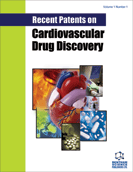Abstract
Monoclonal antibodies are antibodies that are identical because they were produced by one type of immune cell, all clones of a single parent cell. This has become an important tool in biochemistry, molecular biology and medicine. The role of Complement system in inflammation has been well established. Inflammation is a cornerstone of the post-myocardial infarction. Also, during a heart bypass procedure, the “Complement activation” causes an inflammatory response that can lead to side effects such as chest pain, heart attack, stroke, heart failure, or death. One such agent which causes Complement inhibition is Pexelizumab. Pexelizumab (Alexion Pharmaceuticals), a recombinant humanized single chain monoclonal antibody to C5, blocks the conversion of C5 to C5a and C5b-9. Pexelizumab is an Alexion-engineered monoclonal antibody fragment designed to inhibit complement-mediated tissue damage associated with reperfusion injury and inflammation that occurs during open heart surgery. Recent Phase III trials have evaluated the role of Pexelizumab in patients undergoing Coronary Artery Bypass Graft surgery and also in the treatment of acute myocardial infarction. In the ischemia/reperfusion setting of cardiopulmonary bypass surgery, Pexelizumab appears to reduce cardiac enzyme release and possibly mortality. Pexelizumab can also be used as adjunctive therapy to fibrinolysis and primary Percutaneous Coronary Intervention. If approved, pexelizumab would represent not only the first of a new class of therapeutics called terminal complement inhibitors for the reduction of death and peri-operative myocardial infarction in patients undergoing CABG-CPB surgery but also a new approach to improving outcomes for patients undergoing CABG surgery. Present article also includes relevant patents on the topic.
Keywords: Pexelizumab, monoclonal antibody, anti-C5 complement antibody, acute myocardial infarction, coronary artery bypass graft surgery
 3
3


